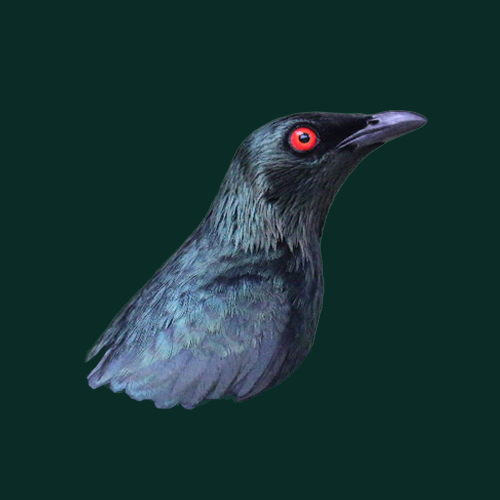Dinagat Islands, Philippines
Drone Revegatation Pilot Testing
February 2020
Dinagat Islands, Philippines
Project TANOM - Phase 1: Biomimetic Drone-Assisted Revegetation: A Novel Approach for Smart Mining Rehabilitation

Mining operations, essential for sustaining global living standards, have historically exacted a heavy toll on ecosystems, biodiversity, and the climate. Clearing over 5.7 million hectares of forests to extract metals and minerals to meet the demands of a growing human population has led to alarming environmental consequences. The World Bank projects a potential 500% increase in mining production by 2050, further exacerbating these challenges.
The rehabilitation of mined-out areas, still reliant on traditional tree-planting methods, presents a formidable challenge. This approach is inherently slow, costly, and labor-intensive, placing immense pressure on mining environmental teams. In response, our research introduces a three-phase solution to revolutionize reforestation in mining sites.
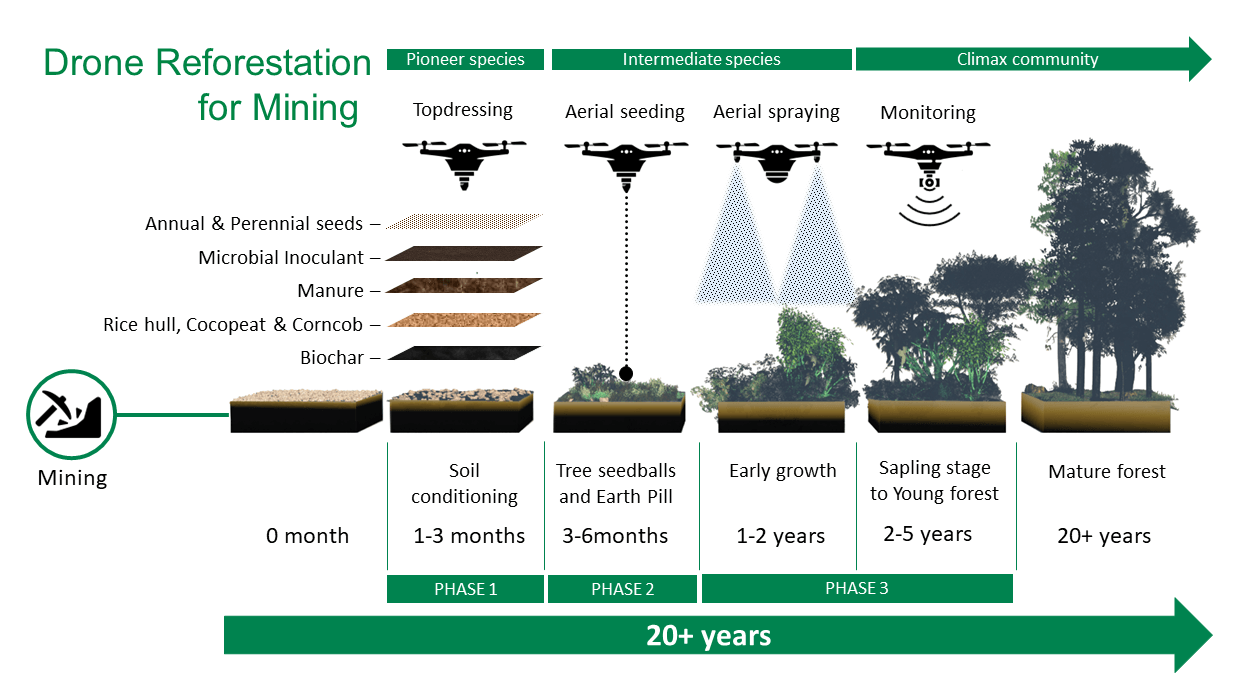
Phase 1: We begin by addressing soil conditions, deploying modified agricultural drones equipped with seed-dropping technology. These drones precisely disperse microbial inoculants, manure, compost, and a mix of annual and perennial cover crop seeds to restore vital nutrients to the disturbed soil.
Phase 2: Three months later, a subsequent drone flight disperses endemic tree seedballs. This pioneering technique involves coating seeds with a blend of manure, compost, biochar, rice hull, cocopeat, and microbial inoculants. Additionally, we disperse Earth Pills containing small tree seeds, encapsulated in gelatin capsules infused with microbial inoculants and slow-release NPK fertilizer.
Phase 3: Aerial topdressing of fertilizers follows, ensuring high survival rates for newly planted trees. Phase 3 employs drone scanning and photogrammetry to monitor the rehabilitation progress proactively.
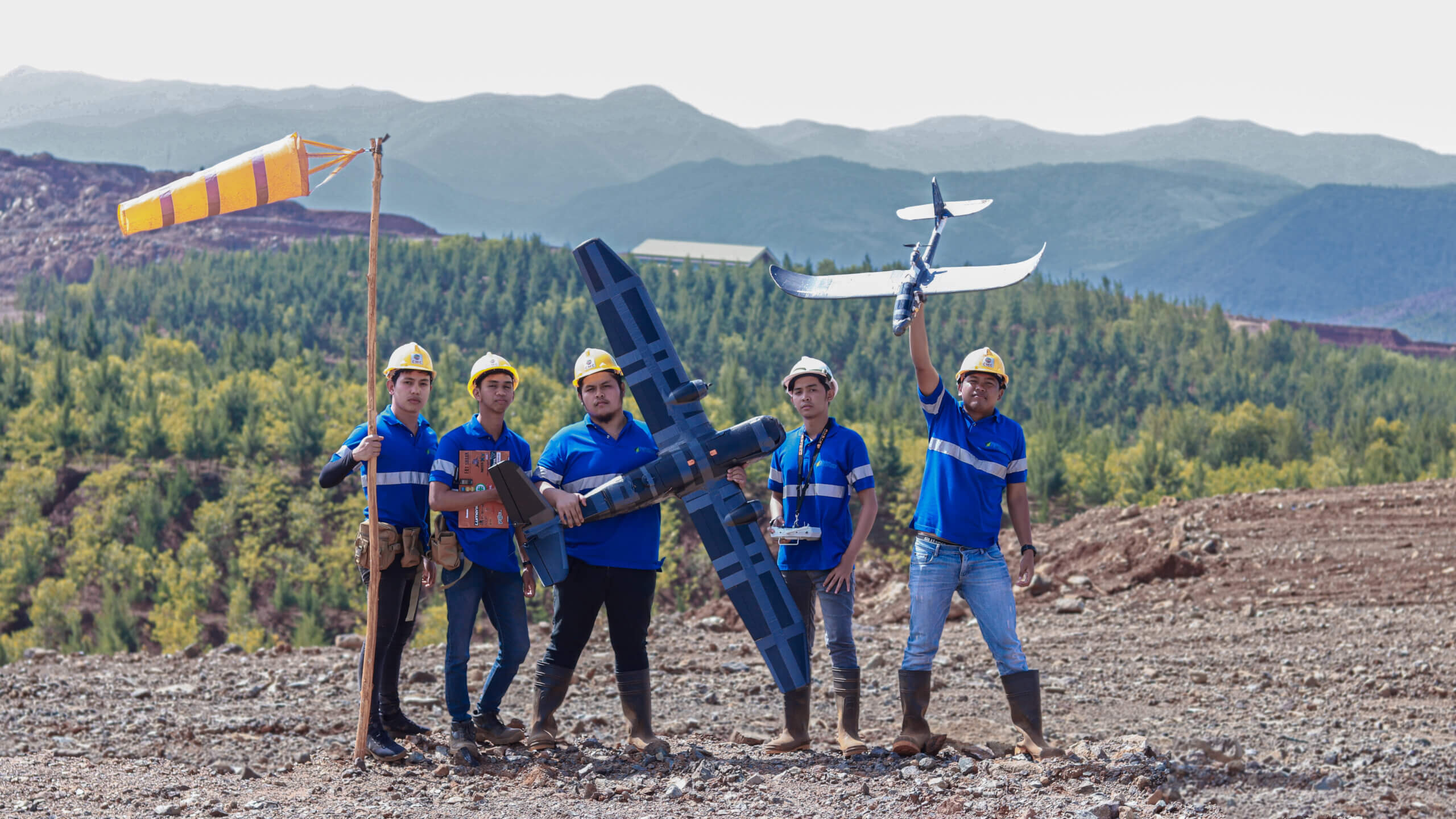
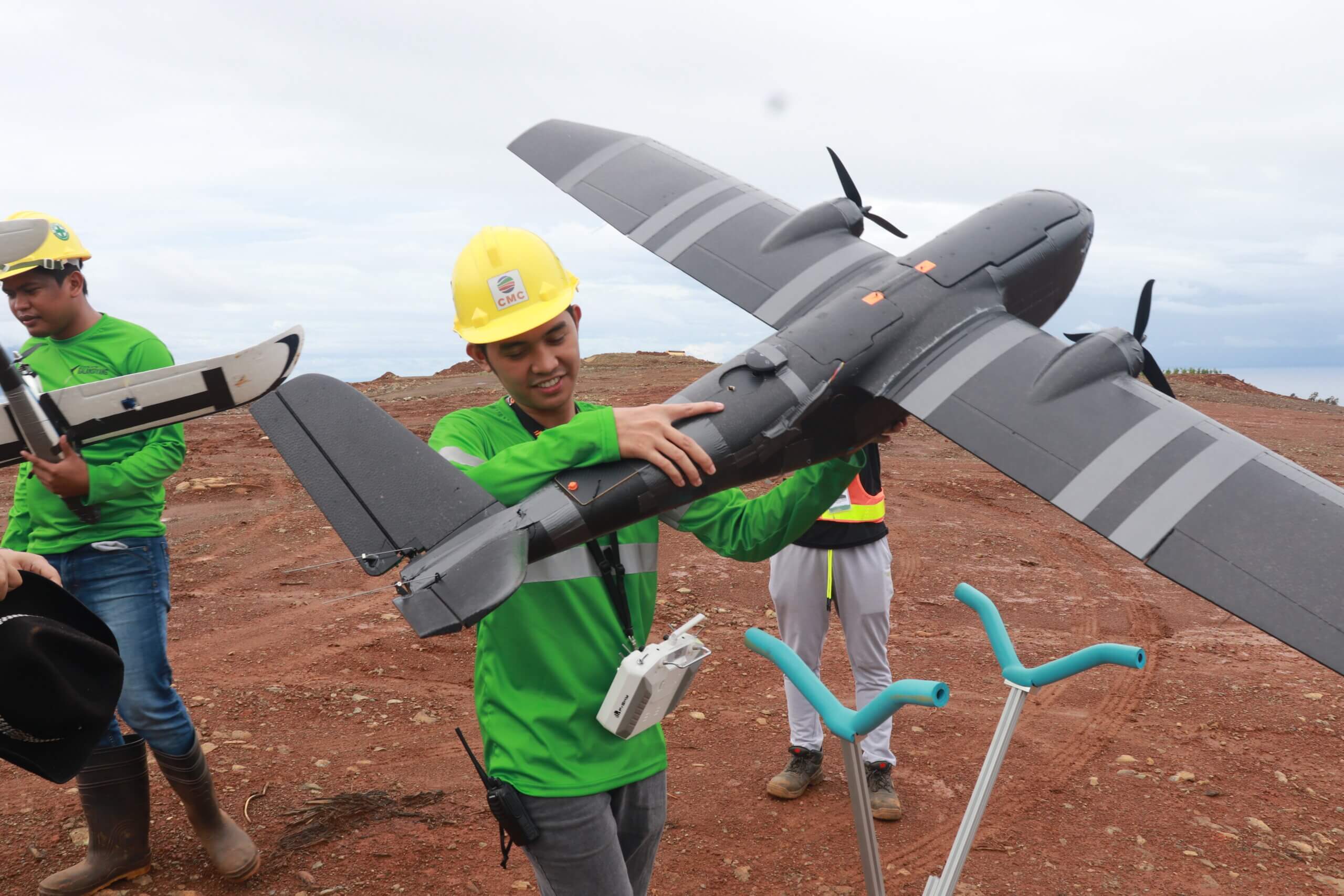
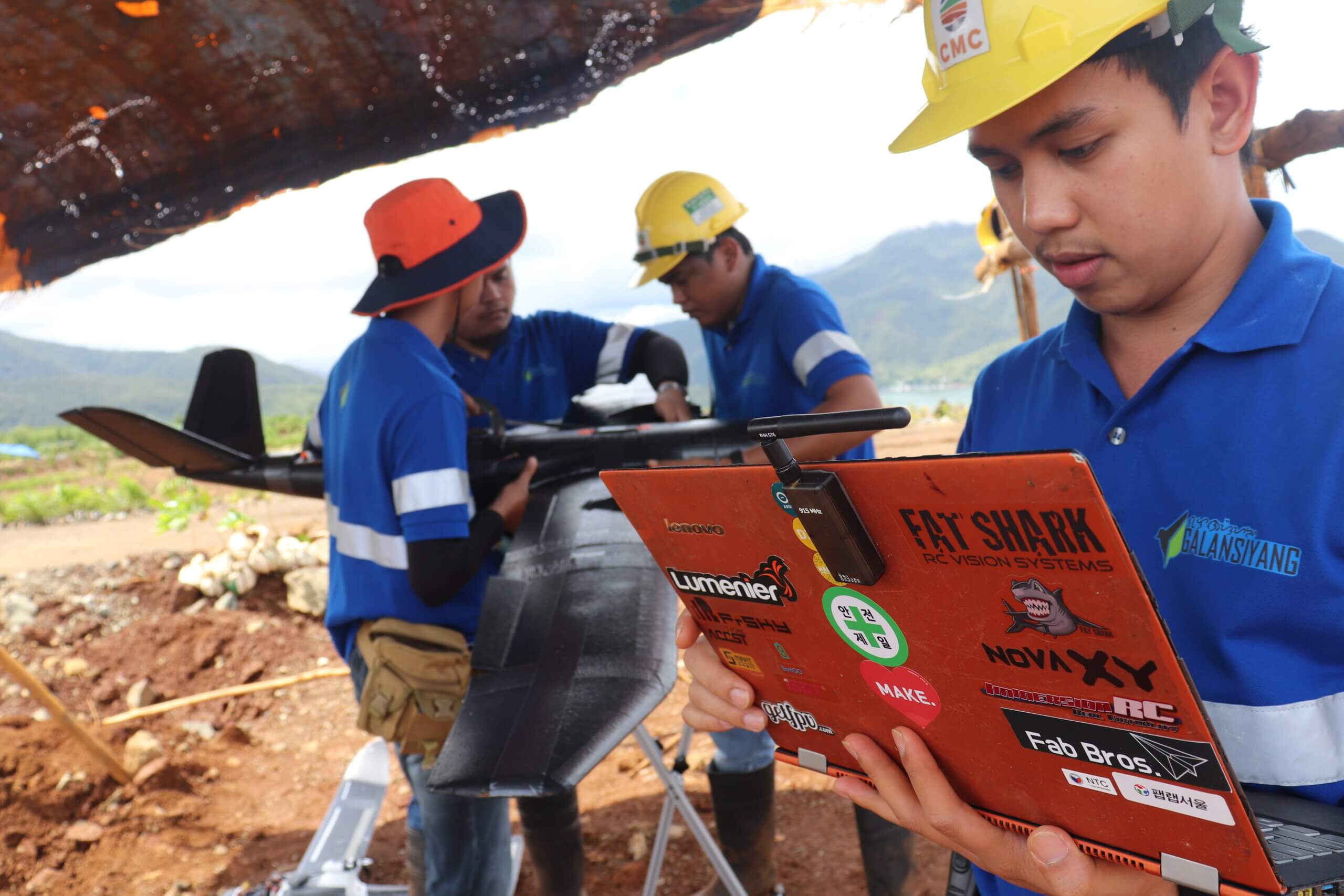
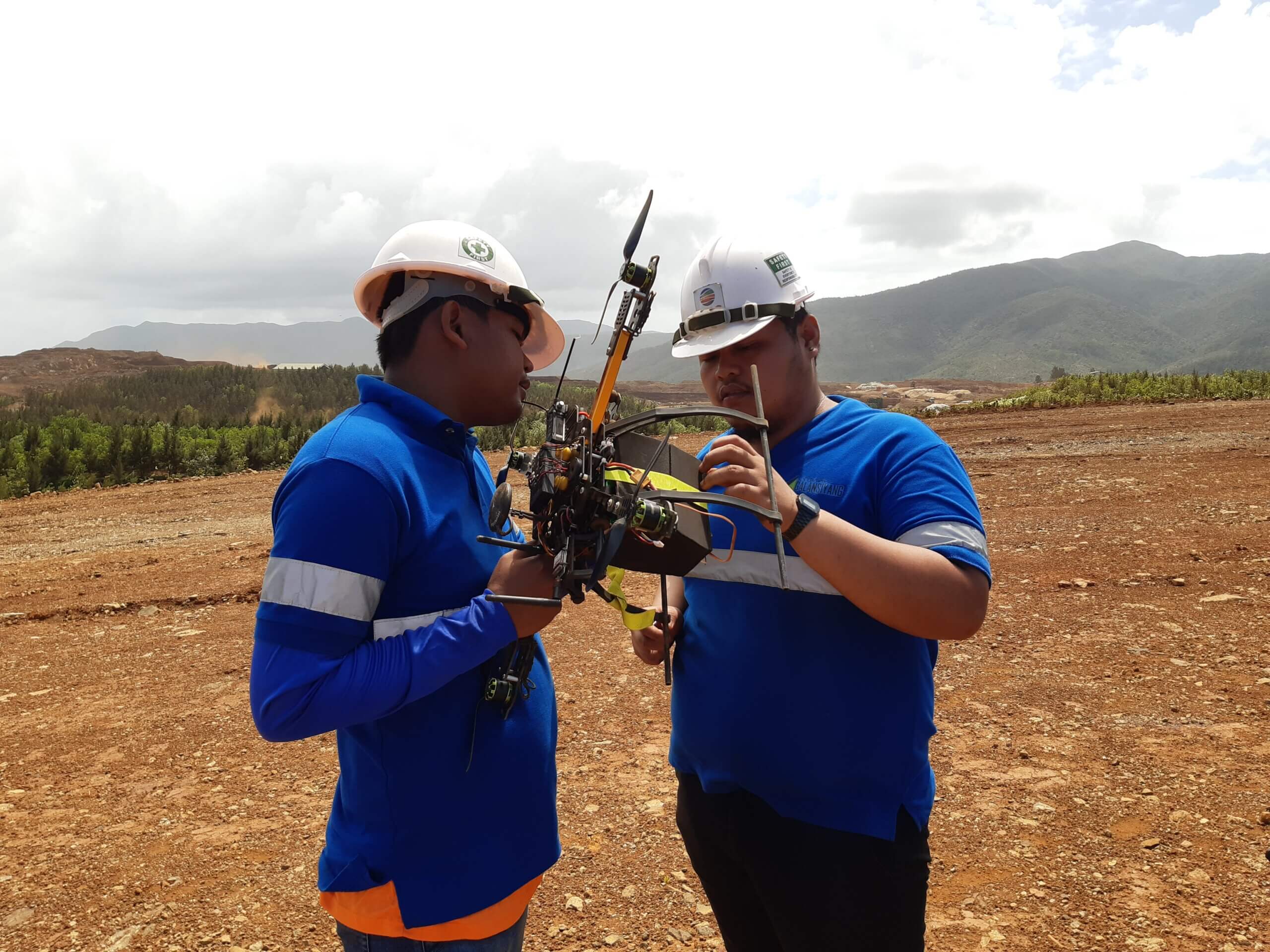
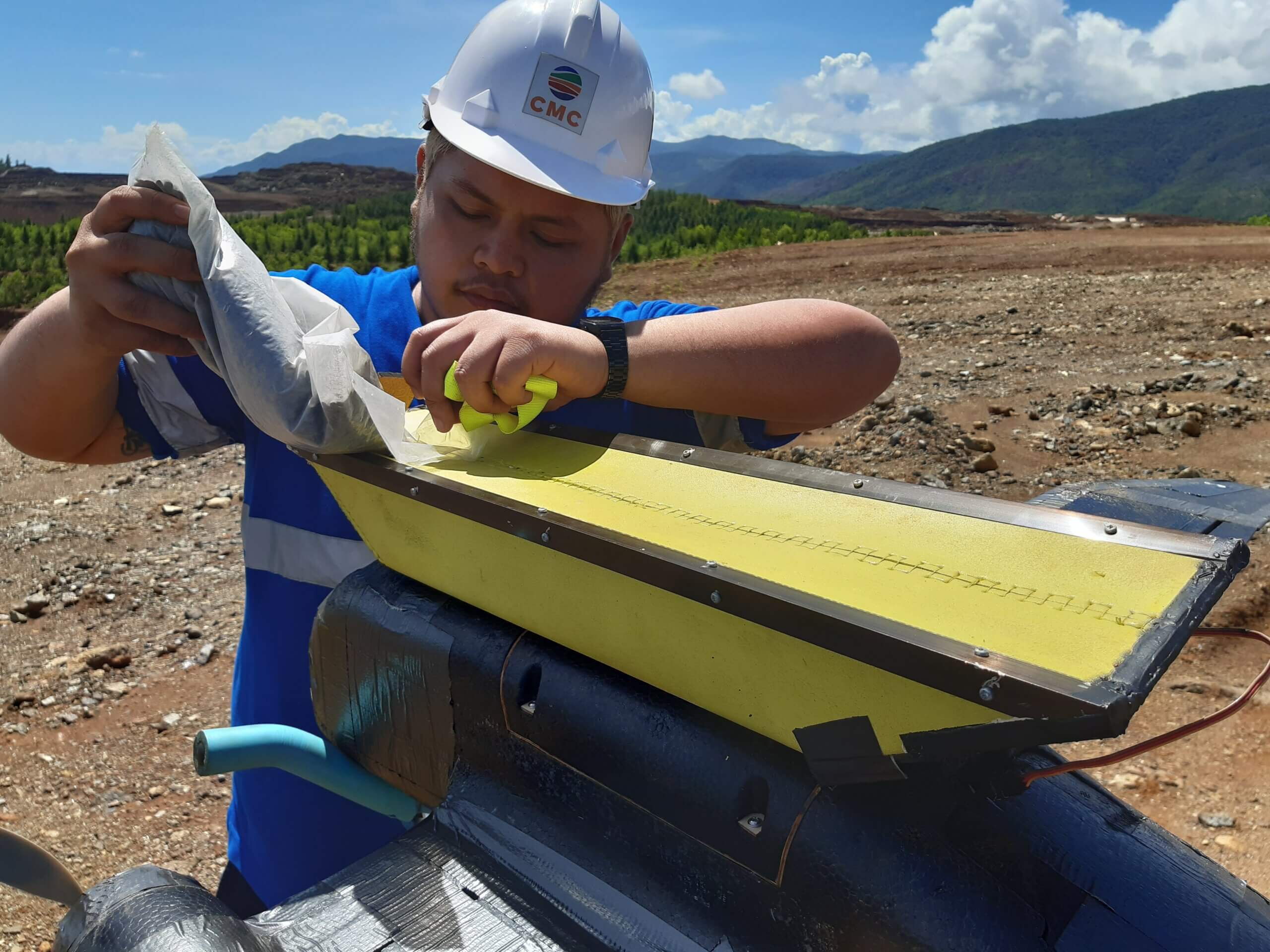
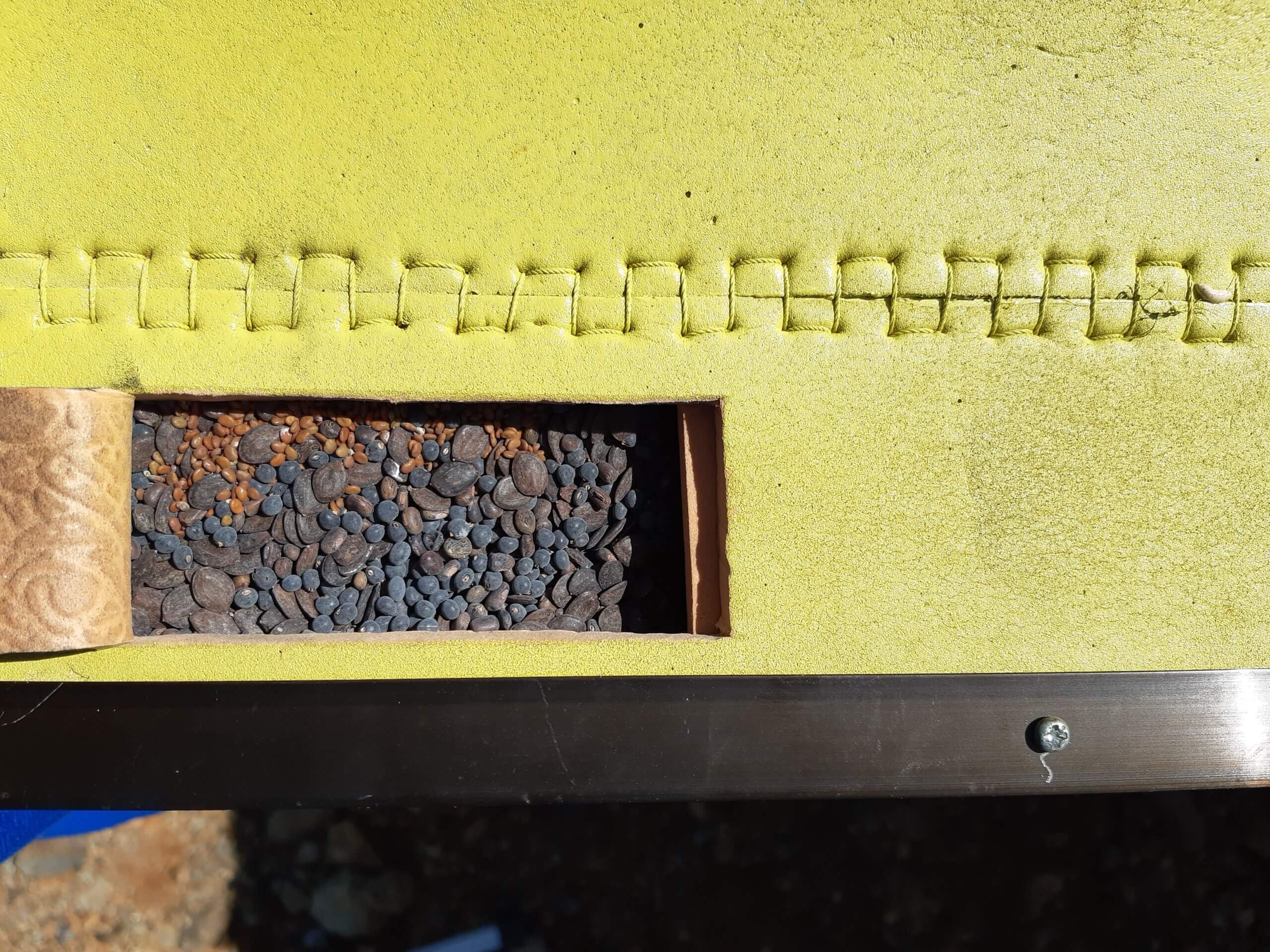
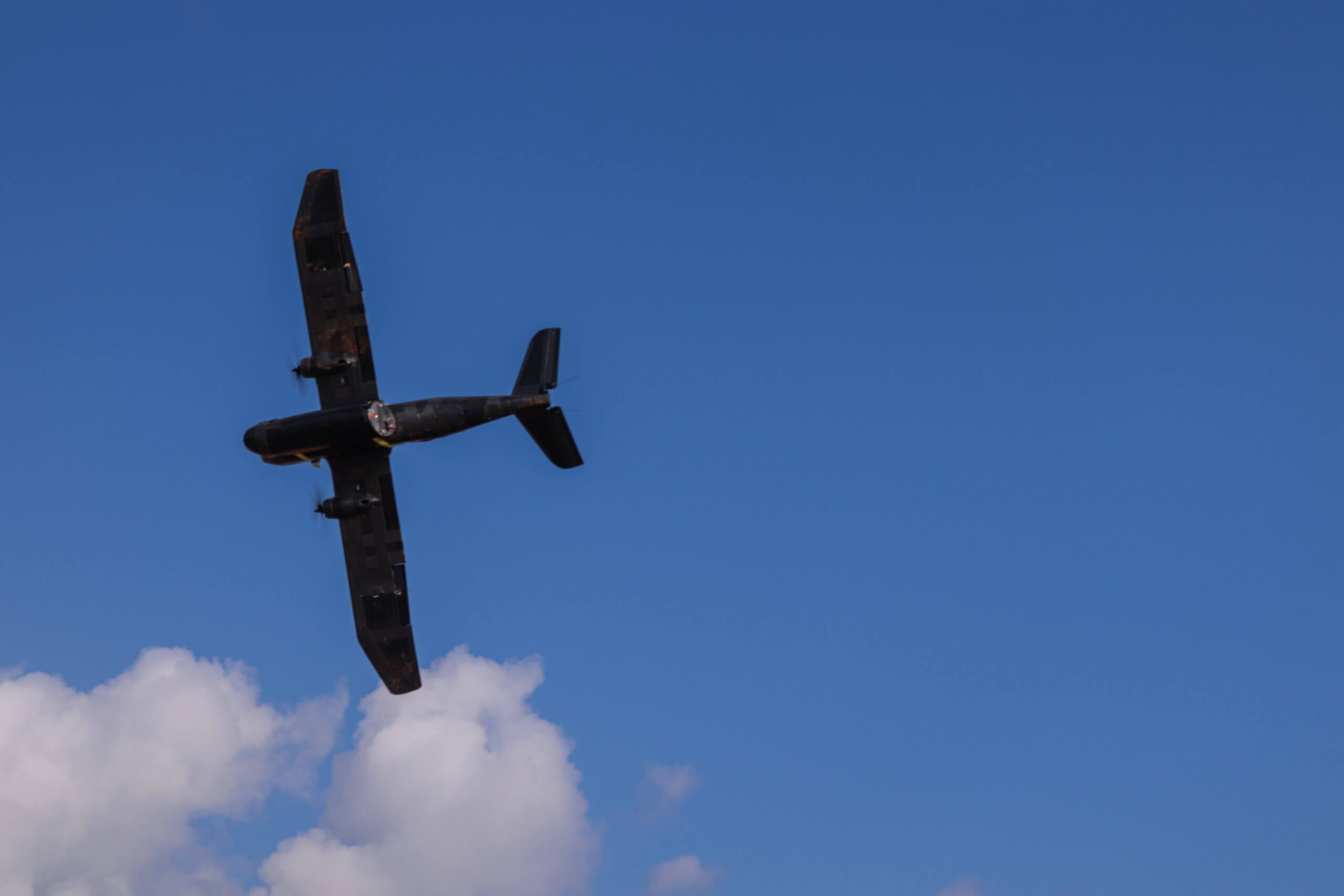
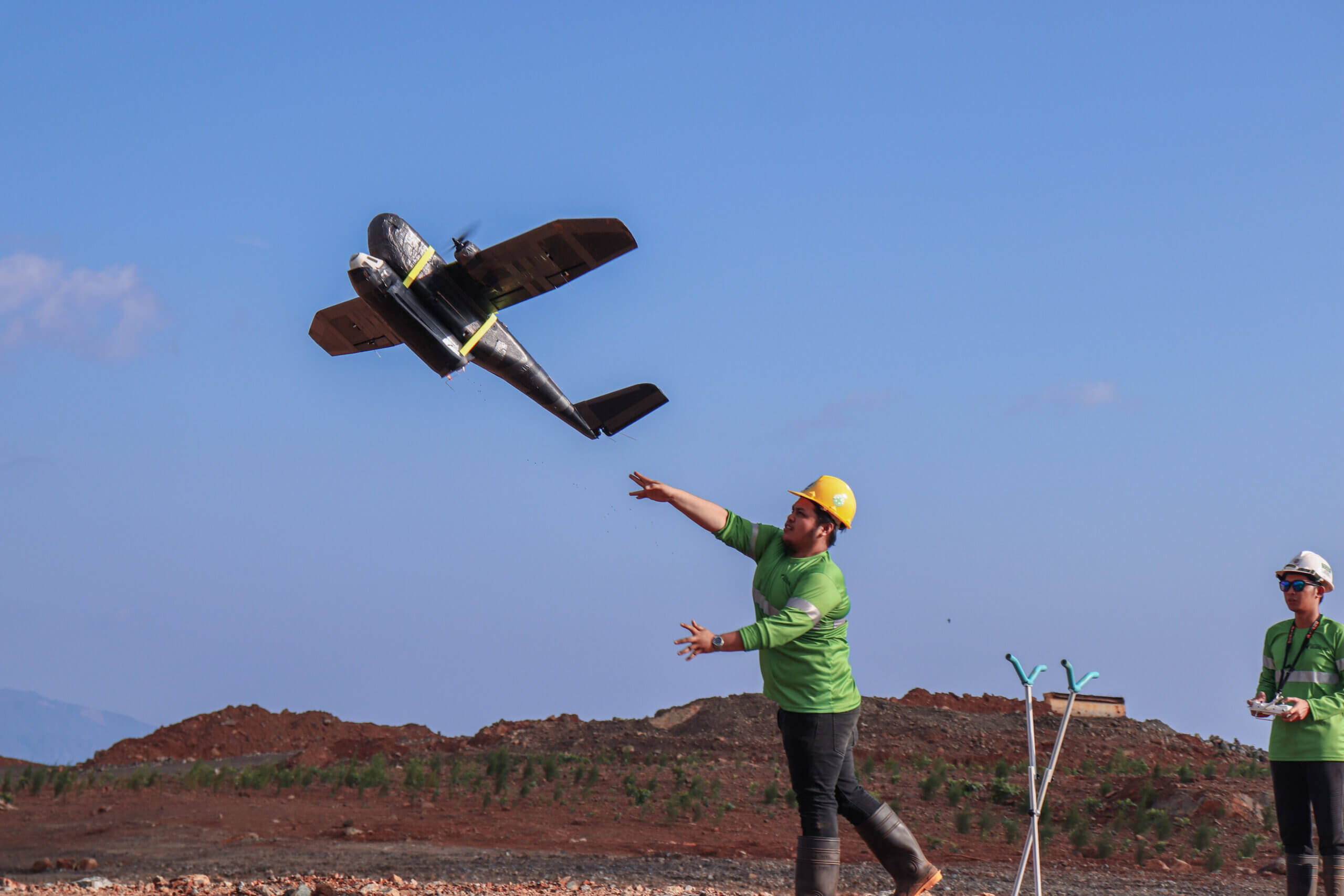
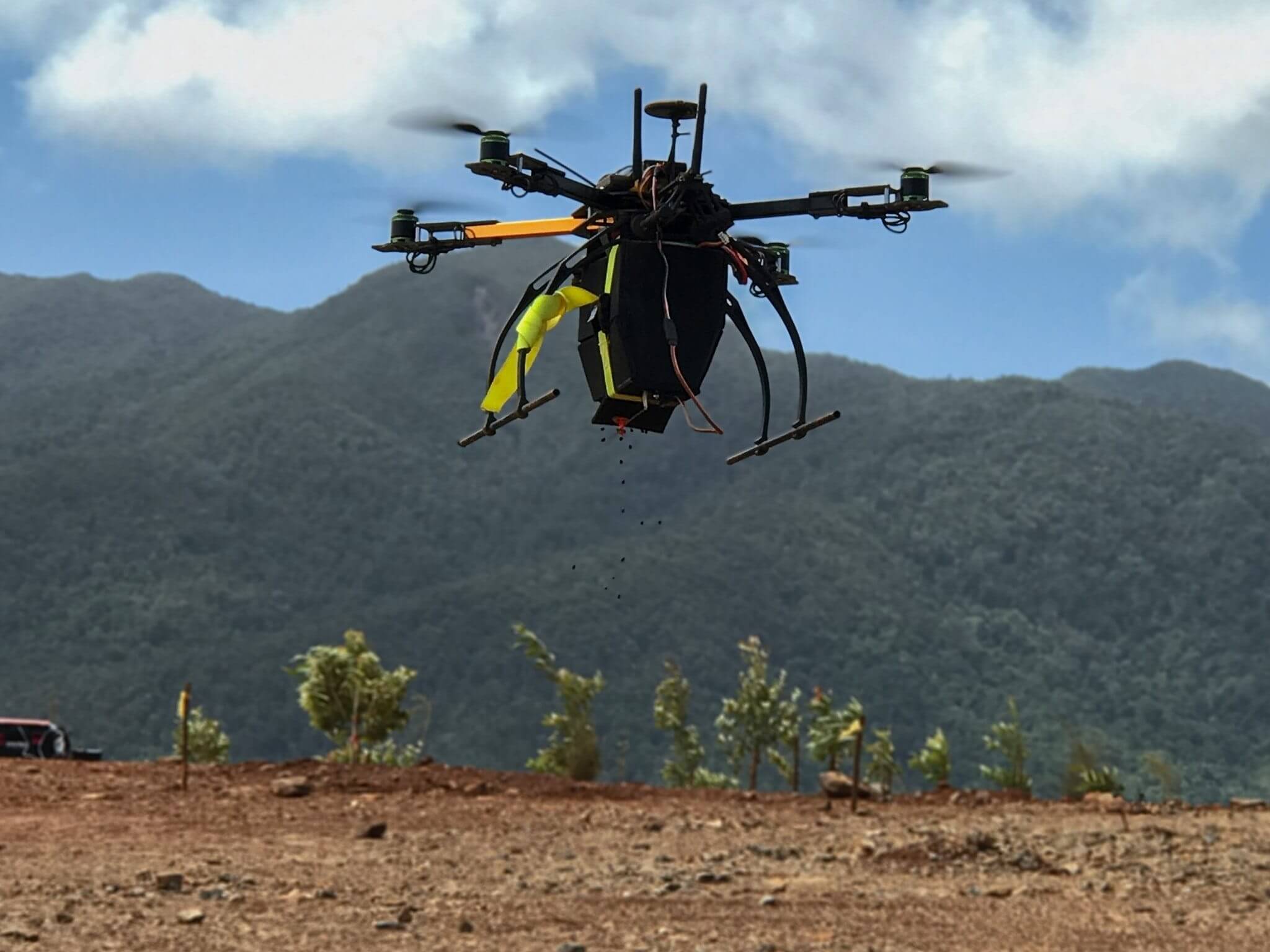
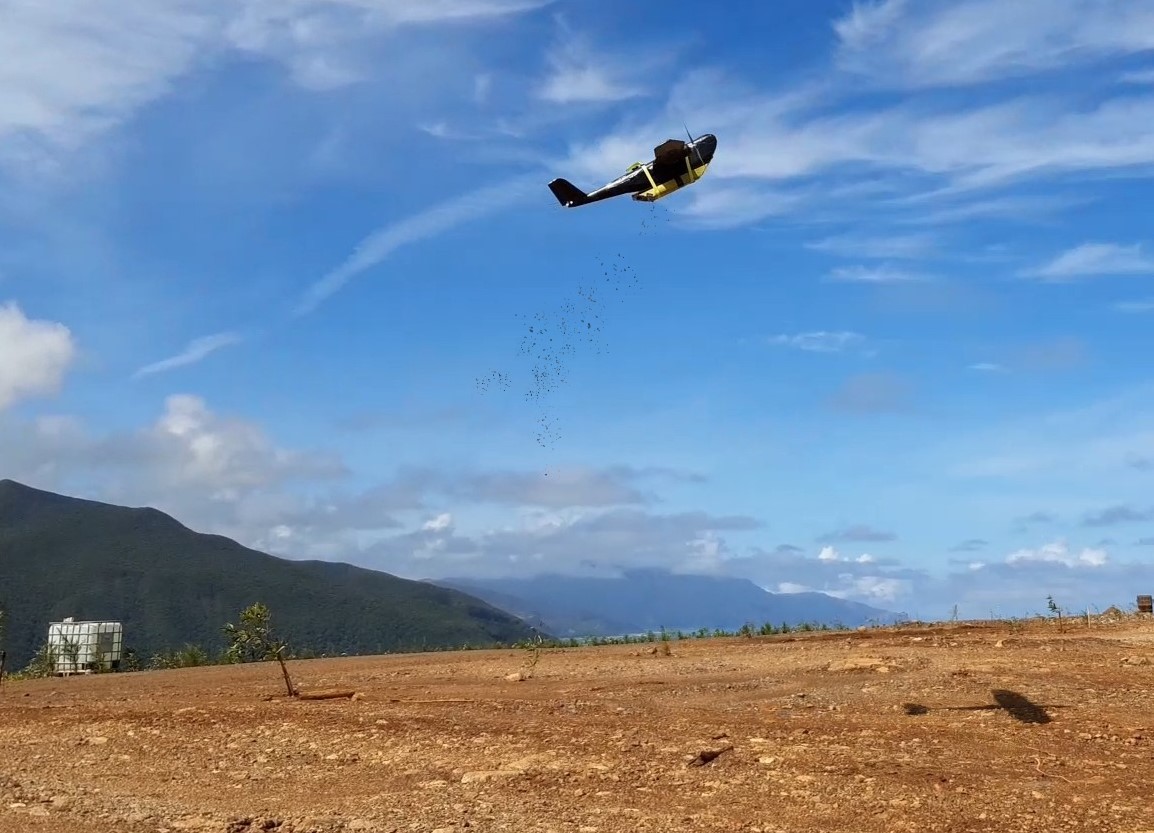
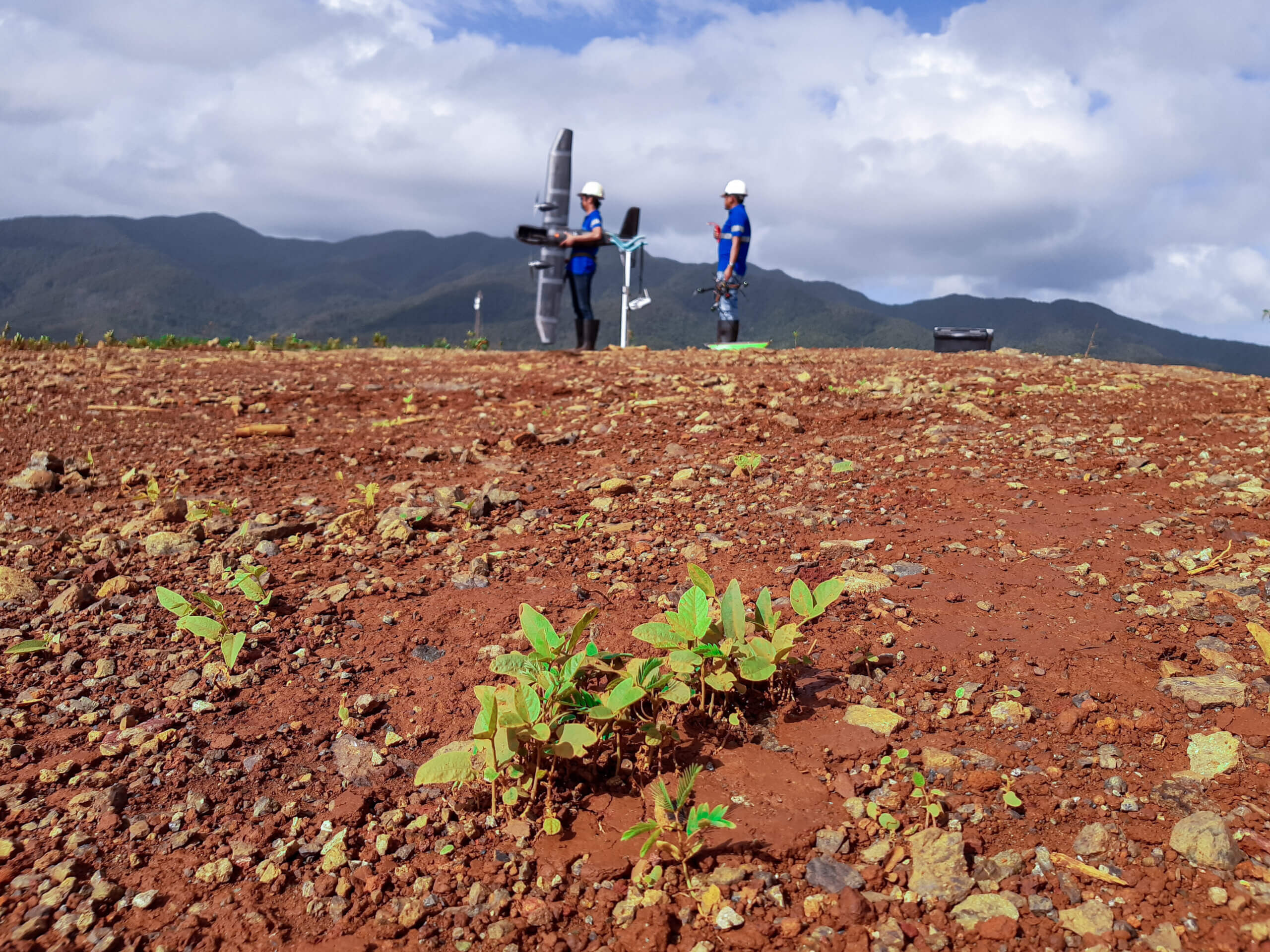
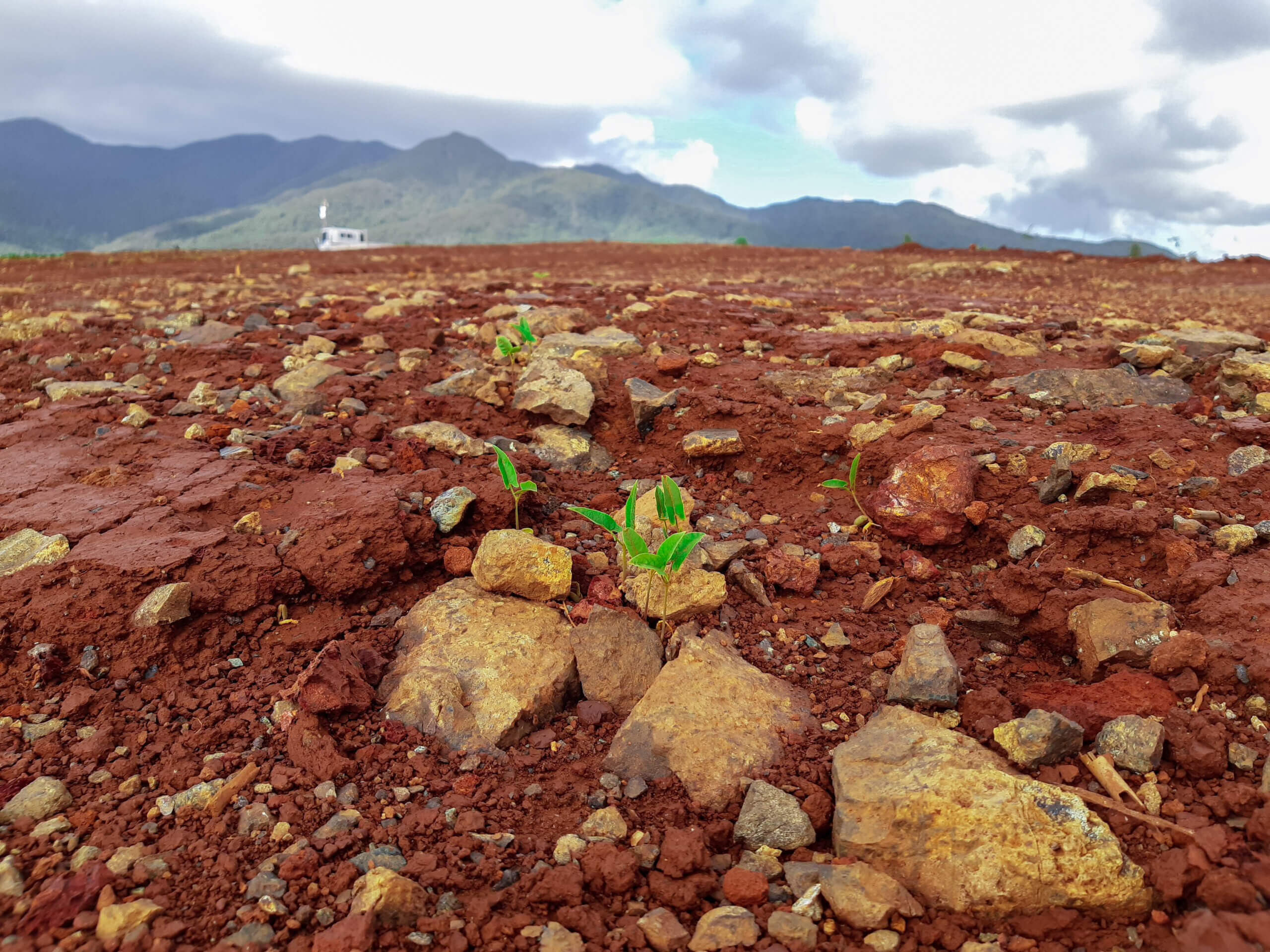
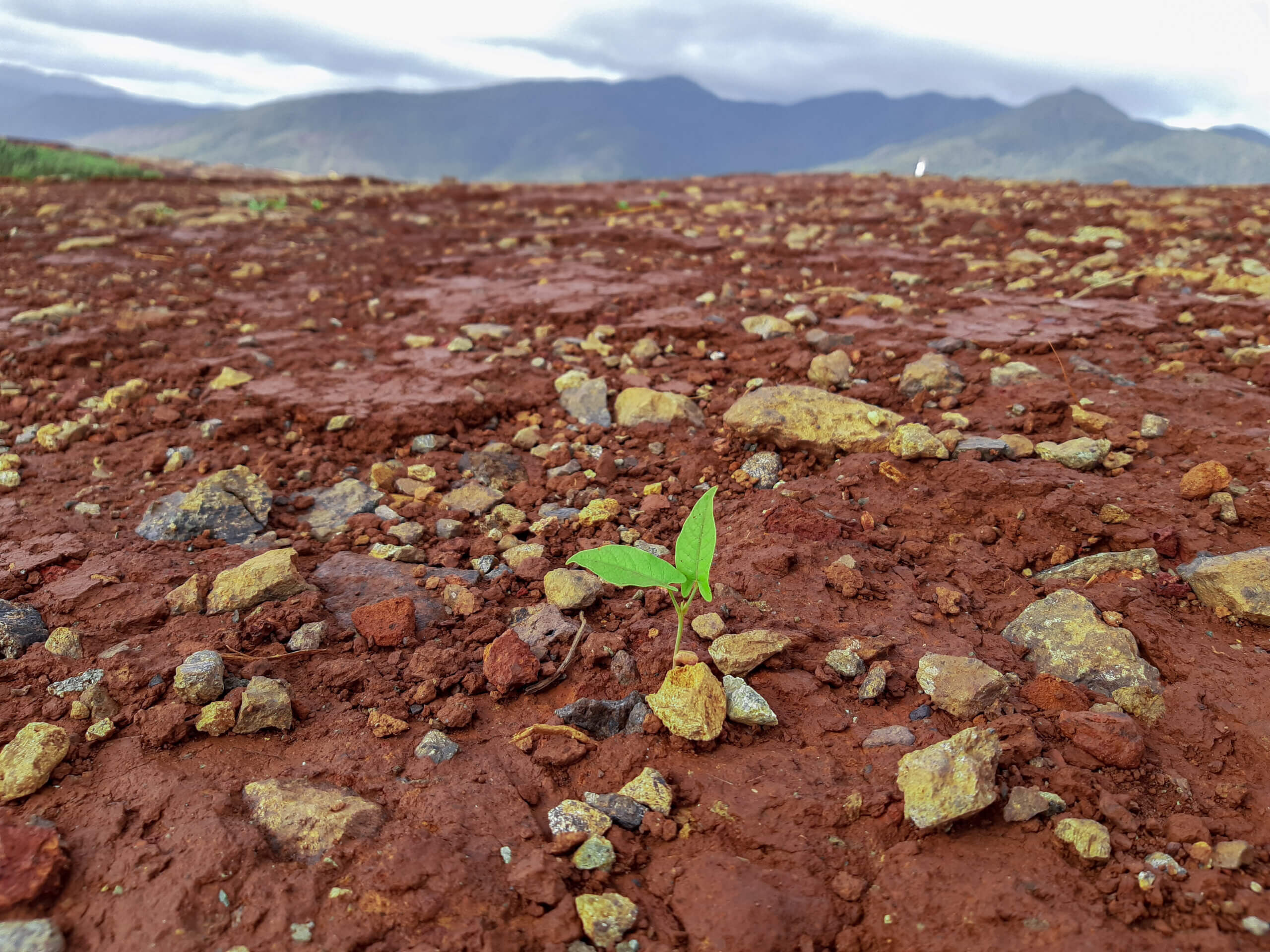
In February 2020, at the pilot test site of Nickel Asia Corporation – Cagdianao Mining Corporation, our modified fixed-wing and quadcopter drones successfully dispersed four species of perennial plants. The total flight time was just 2 minutes and 24 seconds. This accomplishment came after months of technical drone modifications to enable operation in harsh wind conditions in Dinagat Island. Subsequent observations during the COVID-19 pandemic lockdown in May revealed remarkable germination percentages: 89.75% for Fleminigia, 92.25% for Resonii, and 93% for both Centrosema and Calliadra.
This results demonstrate that by emulating the natural process of secondary ecological succession with biotechnology and drone technology, we can rapidly introduce diverse plant species to denuded areas, enhancing reforestation efficiency, speed, and reach. Despite pandemic-related delays, Phase 2 is scheduled to resume in 2024, once we secure additional funding to continue this research in the mining area, further advancing this transformative approach to sustainable mining and ecological restoration.
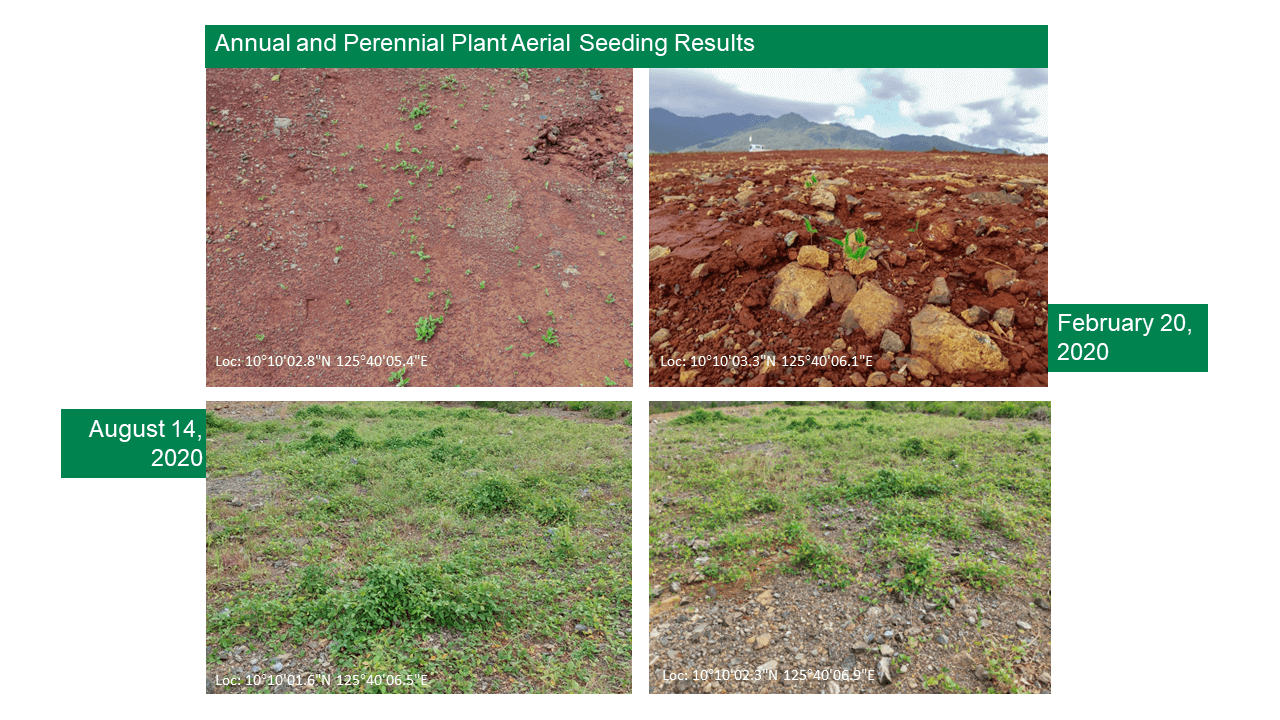
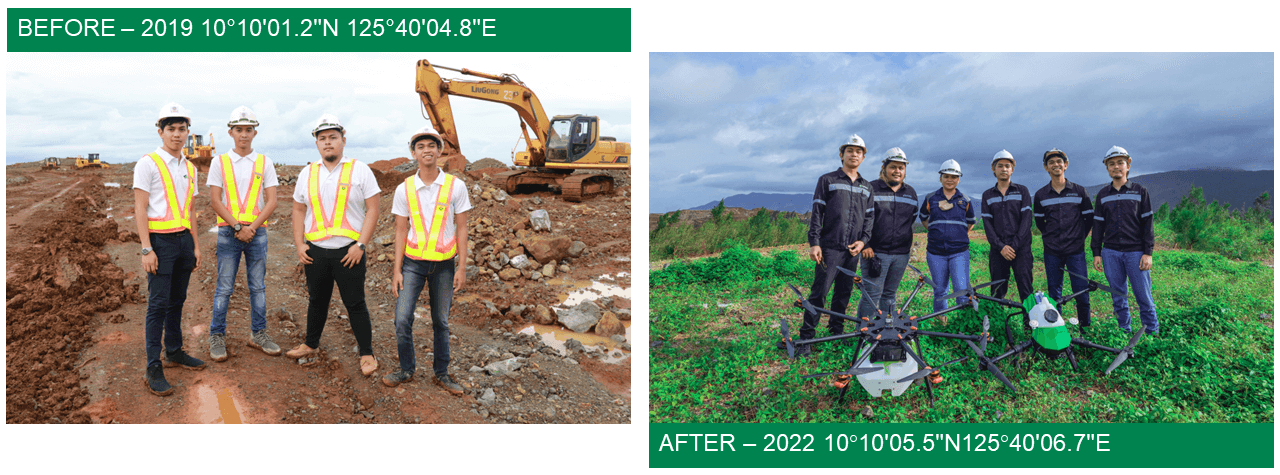
This pilot test is supported by

